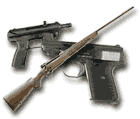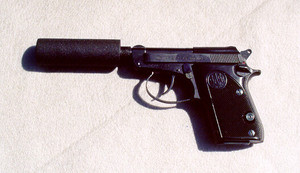Some NFA firearms collectors, who are not engaged in any firearms business, have been known to acquire a GCA license to deal in firearms and pay the NFA special tax to acquire NFA firearms for their personal firearms collections. This is not a wise thing to do and violates the National Firearms Act.
Most individual acquire NFA firearms for the following reasons:
(1) to acquire firearms from non-licensee residing out-of-state;
(2) to circumvent requirements imposed on individuals to provide their fingerprints and photographs in order to receive NFA firearms and law enforcement certifications authorizing their receipt of such firearms;
(3) to purchase and use items that they are not legally able to obtain as an individual; and
(4) to avoid NFA transfer tax on firearms they receive from FFL’s/SOT’s.
Warning: These transactions violate the NFA and can only lead to trouble for the individual. In these instances, the individual has committed Federal felonies by falsely stating on a license application and special tax return that the collector intends to conduct a firearms business. Any NFA firearms received tax free by the collector are subject to transfer tax and the collector’s receipt of the firearms tax free violated the NFA. As held in ATF Ruling 76-22, these transfers are unlawful and the firearms received are subject to seizure and forfeiture.
If you hold NFA restricted firearms that are of a personal use in nature, under a business license, you should consider creating a NFA Firearms Trust to hold the title to these items to avoid being in violation of the National Firearms Act.
 NFA Gun Trust Lawyer Blog
NFA Gun Trust Lawyer Blog



 Class 3 Weapons include suppressors, , short barrel rifles, machine guns, and other destructive devices.
Class 3 Weapons include suppressors, , short barrel rifles, machine guns, and other destructive devices.